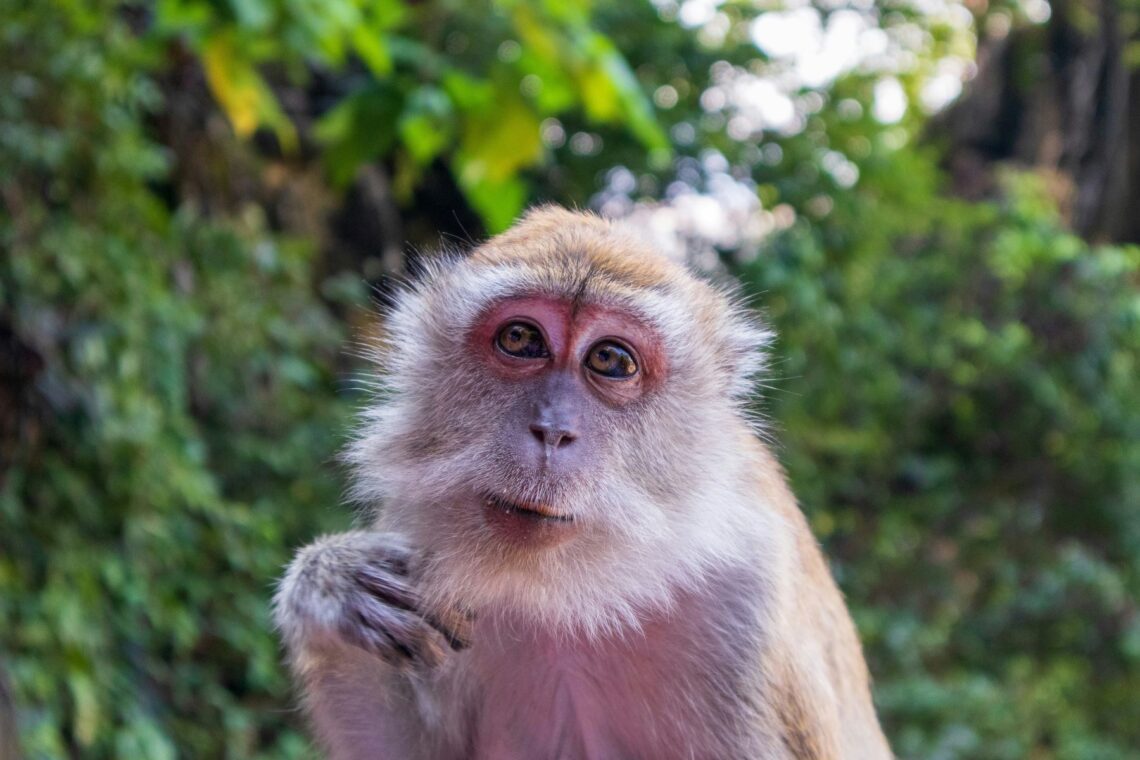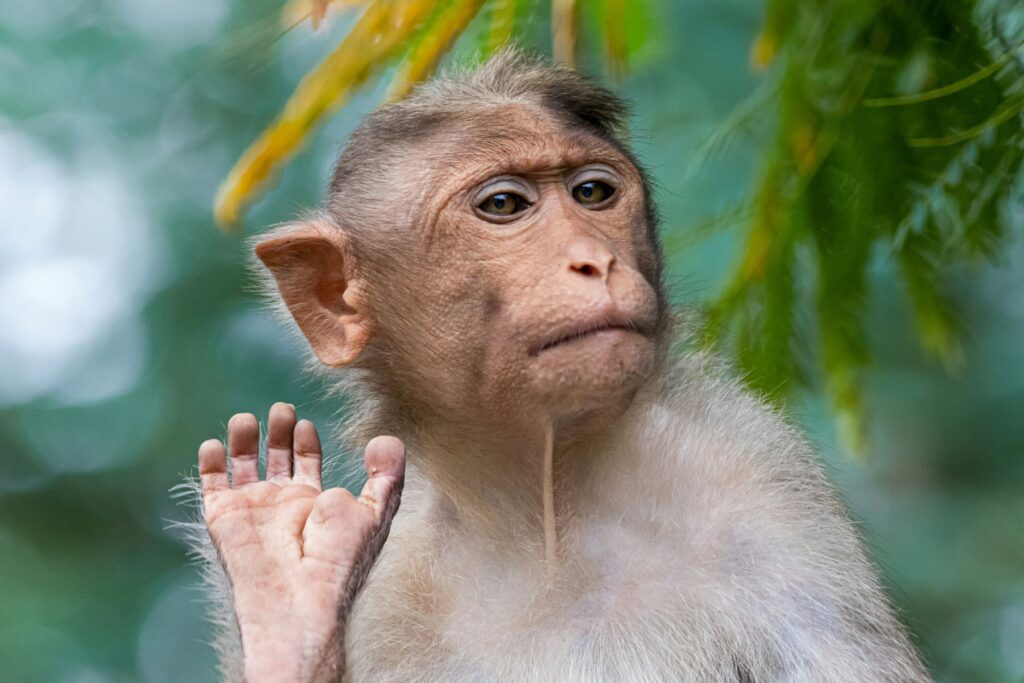
Controlling Your Money Monkey
I love walking my dog because beyond any other benefit it is simply a pleasure to spend time with him and be out in nature. But it has to be said that it is also always when I have my most powerful epiphanies. About myself, life and money.
And this weekend I had the epiphany that we all have money monkeys we need to control!
What is a money monkey?
I can hear you asking your screen.
Well, it’s a term I created (I think) for the cute little money quirks we have that derail our progress.
Money monkeys are the things we do when we have been creating new better financial habits, doing well with our money and things are starting to feel like they’re heading in the right direction.
They are the behaviours that sabotage what we have achieved so far.
My money monkey is gifts.
Whenever I am feeling the slightest bit flush, I find myself buying gifts. And I think we all have a self sabotaging behaviour when it comes to money. Something that protects us from uncomfortable thoughts about our money and what it means about us.
But before I go into that, let me go back to how I came to this primate epiphany….
For the last few weeks I have been selling my unwanted clothing and décor on marketplace, I also did a little bit of bookkeeping work for a friend which they kindly paid me for and I have been testing renting out my spare room on Air BnB. None of which has brought in big money, but it has started to created a welcome buffer in my bank balance.
However, just as things were starting to feel financially easier what did I do? I bought gifts, of course!
$20 of the $70 I spent last week on groceries was a bottle of wine for my neighbour (and I baked them a cake) as a thank you present. It is a much deserved thank you for helping me and just generally be all round awesome humans. I bought a book on Amazon for my brother because I heard the author interviewed on ChooseFI and I thought of him. I bought an Easter card and chocolates for my parents even though I had strict instructions NOT to spend money buying them anything, and I bought an ice cream for my dog.
Now obviously none of these are extravagant gifts. But they add up and my bank balance now has less of a buffer.
This is what I do whenever I feel the remotest bit flush with cash: I give it away.
Years ago when I sold my house in the UK and was sat on the equity for a while I bought my cousin a chair, I gave my partner (later husband, and now ex-husband) a car, I paid for both of us to fly to New Zealand and travel around in a camper van (yes, the size of my gifts seems to have a direct correlation to exactly how flush I am feeling!)… and these are just the gifts I remember.
Last year when I received some surprise money from my business, I sent some flowers to my Mum (just because), I bought a present for the guy I was seeing, I bought a magazine and pamper voucher for my pregnant friend, I treated a friend to dinner… you get what I am saying.
My money monkey of gifts has scurried along throughout my life whenever I have had money.
So, he’s not an adorable little baby monkey, he is a great big stinky ape almost as old as I am.

Where do money monkeys come from?
Gifts are obviously my love language (I am English so words were never going to be, I am also lazy and busy which precludes the other two) and when I feel flush I want to show the people I love what they mean to me, but it’s more than that.
I believe having money is a bad thing.
Because I think having money means you are greedy and selfish. And I also believe being wealthy makes you unlikable.
Yes really, these are all money stories I learned growing up that I have stored in my subconscious for 45 years.
And add to that, deep down, I also don’t believe I deserve wealth.
(Wow. That’s a lot to unpack)
So it is no wonder whenever I have money I feel the need to literally give it away.
It is no wonder I have never been wealthy.
It’s no wonder, throughout my life, every time I have had even the smallest amount of spare money my money monkey has come along to relieve me of it.
I literally have a psychological aversion to money.
Money monkeys are not simply the silly things we do with money when we are not being mindful. They are more malicious than that.
Money monkeys are behaviours we use to avoid having uncomfortable feelings about money.
So my money monkey runs wild whenever I start to think I have money and I don’t want the uncomfortable feelings of guilt or shame because I think having money makes me greedy, or I am unworthy of it.
Much as I love giving gifts and have happily accommodated my currency capuchin, he is getting in the way of me achieving my financial goals.
If I want to pay off my mortgage by 50 and retire by 52 I need to learn to control my monkey!
What can we do about money monkeys?
I decided to call them monkeys rather than something less cute (like money tarantulas) because it doesn’t help to be afraid of them. And it also doesn’t help to be angry or resentful of their existence.
These habits of ours formed over years of absorbing money stories and beliefs from our parents, friends and society in general. Our brain has created our money monkeys not to run amok and intentionally derail us, but to protect us from something.
But we don’t need protecting from it.
We need protecting from our money monkeys because they are what are going to stop us from achieving our money goals and creating the life we want.
It’s no good spanking them or yelling at them to go away though. The best way for us to control them is to acknowledge their existence, laugh at their crazy antics and make sure we don’t let them get away.
Now I have recognised that my impulse to buy gifts is often linked to feeling flush (and unworthy of any money I have made) next time I get that impulse I will write a letter instead, or move some money into a savings account for my next trip back home, or invest extra into the S&P 500….
That resolves the short term monkey problem: the habit I have created to protect myself. But long term I also need to overcome the belief that is at the root of that habit: that I am not worthy of being wealthy. And that starts with changing my thoughts and practicing new ones.
When it comes to money, and everything in life actually, our feelings drive our actions, and our thoughts create our feelings. Which means if I want to stop the action of buying gifts, I need to stop feeling uncomfortable receiving money, and to stop feeling uncomfortable receiving money I need to stop believing that I am not worthy of wealth. And that all starts with changing my thoughts.
Every time I receive money, I need to practice thoughts like “people can do good with money” and “I am worthy of the money I make.” I need to practice these thoughts regularly, every day even, until they replace the current thoughts I have.
So, there are 3 steps to starting to control your money monkey…..
3 Steps to Controlling Your Money Monkey
And it probably goes without saying that you start with the first step. But you need to work on all three at the same time in order to really get that pesky primate under control.

1. Identify your monkey
The first step is identifying them! What is the thing you do that derails your progress? It might take you a while to pin it down it because you will need to see the pattern. It’s not something you do once, it’s the behaviour or habit you do EVERY time your bank balance is looking healthier.
It might be buying the latest gadget, it might be having a big night out on the town, it might be treating yourself to a new bag, it might be an expensive dinner out with friends or loved ones… If you’re tracking your income and expenses you are more likely to spot it because every time your income goes up this category of spending will also increase. Of course it might not be a spending habit at all, it might be that you take your foot off the money making gas. Just keep an eye out and try to spot that monkey.
2. Redirect your spending
Once you know what your money monkey is, next time he decides to rear his cute little head, laugh at him and say “not today monkey” and then choose an action more aligned with your goals.
Buy shares instead of splurging on the high street, transfer some money to your emergency fund and buy a bottle of wine in your groceries rather than heading out to your local wine bar, buy another advert and sign up another new client rather than losing momentum in your business.
3. Create new money beliefs
The last step is the most important, it is understanding the underlying feeling your money monkey is trying to help you to avoid, and the money belief or thought linked to it and starting to work on changing that.
Your thought probably won’t be the same as mine, although it might be because as women we have a lot of guilt about money and especially spending or even keeping money for ourselves (but that is a subject for another blog post!)
To understand your own thought that is driving your money monkey delve into how you feel when you receive or spend money and what thought creates that feeling. You might be surprised what comes up.
I haven’t consciously been living my life thinking I am not worthy. I have always pushed myself in my career, I have fought hard for pay rises, I would have said that I believe I deserve the money I make. But somewhere in my subconscious was (is) the underlying belief that I am unworthy of wealth.
So these self-sabotaging or limiting money beliefs can be hidden away, you might need to dig deep to find them. But when you do and are able to change them, that is when you will really start to see shifts in your money habits and results!
In the meantime I am going to call my monkey Marvin and watch out for him appearing next time I am having a good money month.
Amy
XO$
P.S. – Pretty sure that wins the title of personal finance post with the most monkey photos!




